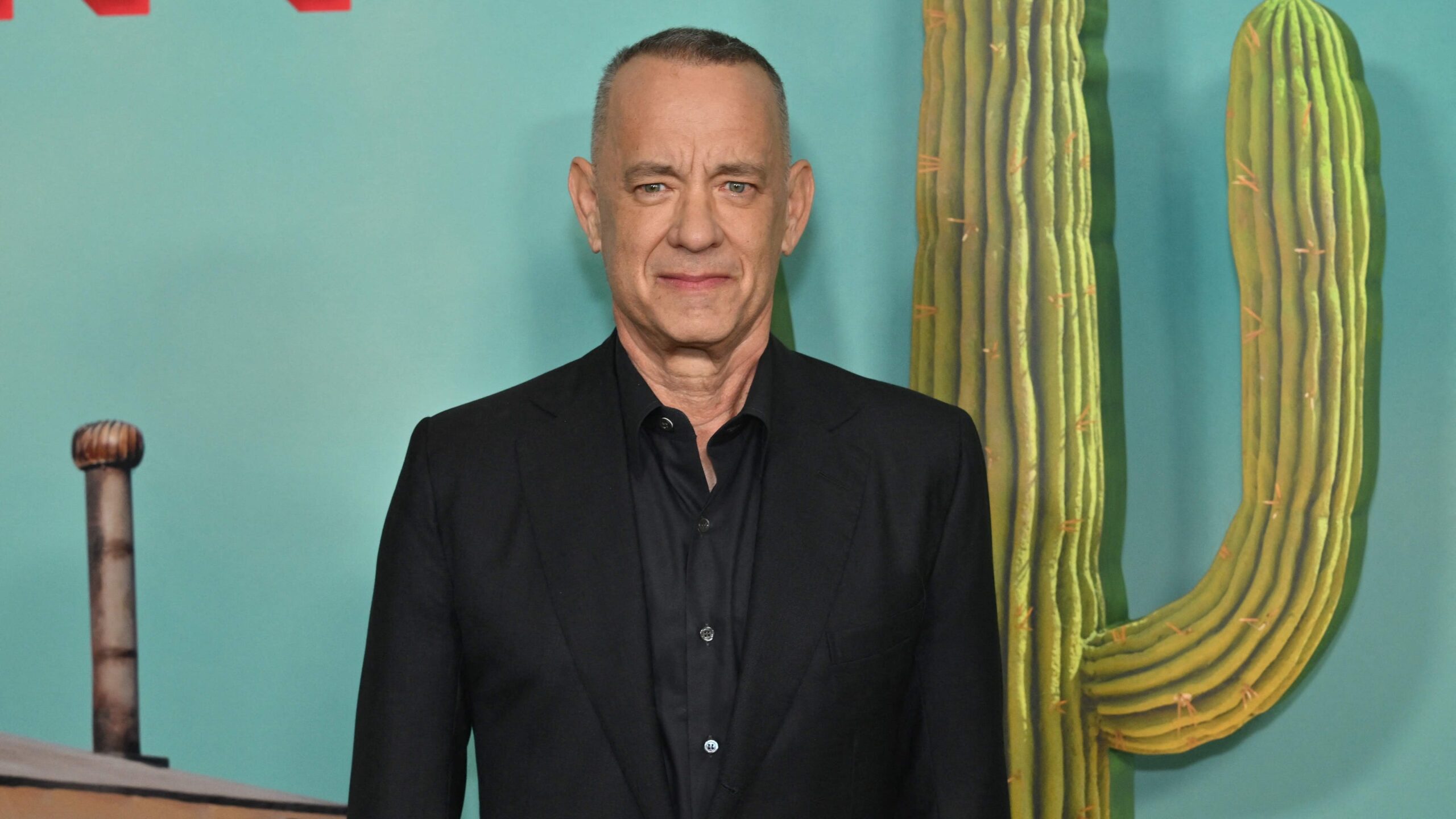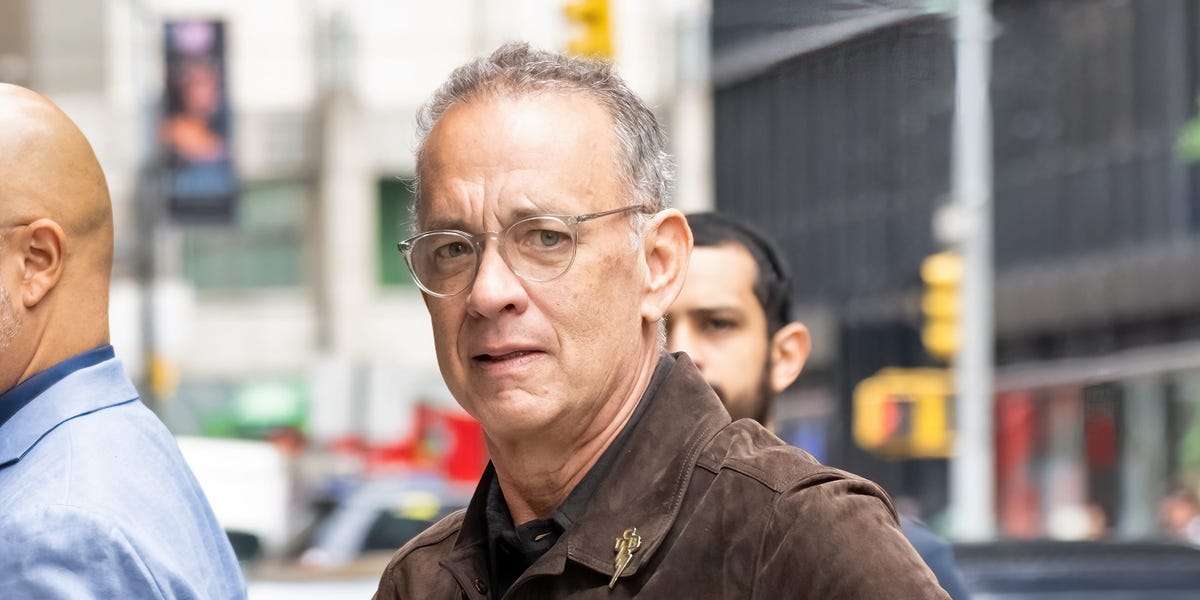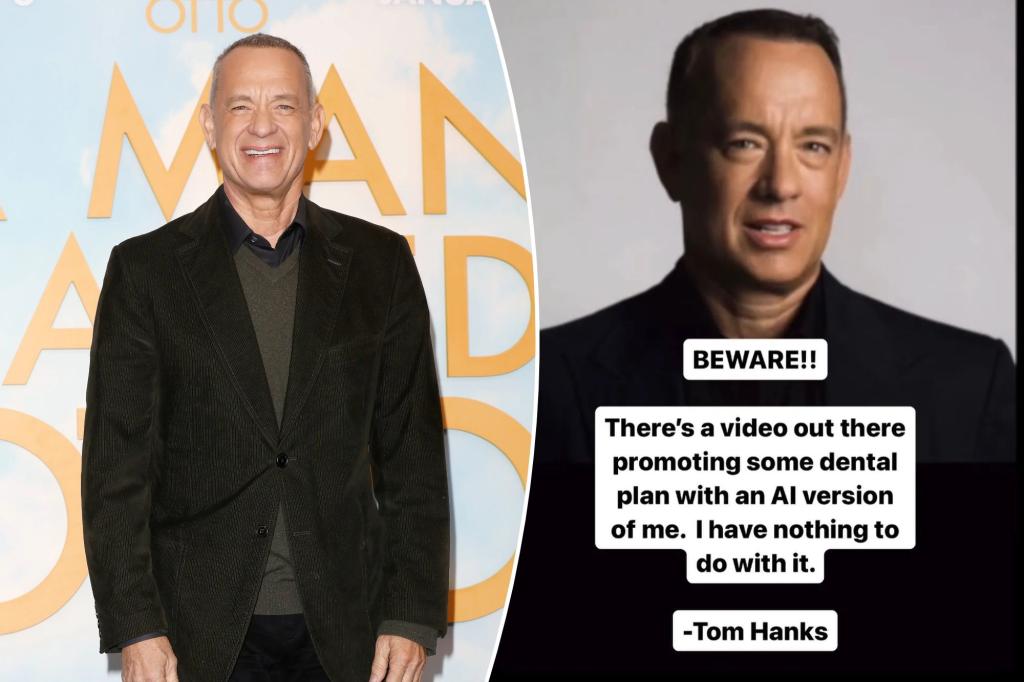Tom Hanks says dental plan video uses ‘AI version of me’ without permission
Tom Hanks, beloved Oscar-winning actor, took to social media to express his concern over an advertisement featuring an AI-generated version of himself in a dental plan video. Hanks made it clear that he had no involvement in the creation of the ad and wants to warn his fans about it.
Hanks raises alarm on social media

In a recent Instagram post, Hanks shared an image showcasing a computer-generated version of himself promoting the dental plan. With a strong message, he wrote: “BEWARE!! There’s a video out there promoting some dental plan with an AI version of me. I have nothing to do with it.” This post quickly gained attention and sparked a conversation about the use of AI in media.
Hanks’ insights on AI in the entertainment industry
Tom Hanks has been vocal about the advancements in AI technology and its potential impact on the entertainment industry. During an interview on The Adam Buxton Podcast, Hanks discussed the ability of computers to transform zeros and ones into realistic faces and characters. He mentioned that there are ongoing discussions within industry guilds and legal firms to address the legalities surrounding the use of his likeness and intellectual property.
Implications of AI-generated content
The use of AI-generated content has raised several concerns among actors and writers. The Screen Actors Guild – American Federation of Television and Radio Artists (SAG-AFTRA) has been negotiating with studios to establish boundaries on the use of AI in their contracts. There are worries that actors could be replaced or impersonated digitally without their consent, leading to potential disputes over credit and compensation.
Positive steps towards regulation

The Writers Guild of America (WGA) recently concluded a strike and reached an agreement that includes guidelines for the use of AI in the entertainment industry. While it does not completely ban the use of AI, the agreement prohibits AI from writing or rewriting literary material. AI-generated content will not be considered source material. However, writers can still utilize AI tools voluntarily to aid their writing process, provided that studios allow it.
Protecting writers and their intellectual property
The WGA agreement also ensures that writers are informed if any material they work on contains AI-generated content. This transparency allows writers to maintain control over their work and ensures that their credit is not undermined by AI contributions. By establishing these guidelines, the WGA aims to protect the rights of writers in an evolving digital landscape.
Tom Hanks as a vocal advocate
Tom Hanks’ concerns regarding AI and its impact on the industry reflect the broader conversation among actors and writers. By speaking out against the unauthorized use of his likeness, he brings attention to the ethical implications of AI-generated content. Hanks serves as a prominent voice in the ongoing discussions on how to navigate the relationship between AI and the creative process.
Conclusion

The incident involving Tom Hanks and the AI-generated dental plan video highlights the need for regulations surrounding the use of AI in the entertainment industry. Actors and writers are rightfully concerned about the potential consequences of AI on their work and intellectual property. The steps taken by organizations like SAG-AFTRA and the WGA are crucial in shaping the future of AI usage, ensuring that artists’ rights are protected and that the creative process remains ethical and transparent.
Frequently Asked Questions

1. Can AI completely replace actors in the future?
While AI technology has advanced significantly, it is unlikely to completely replace actors in the near future. The essence of acting lies in the nuances, emotions, and unique interpretation that human actors bring to their performances.
2. What are the concerns surrounding AI-generated content?
One of the major concerns is the unauthorized use of an individual’s likeness or voice without their permission. This raises ethical and legal questions regarding intellectual property and control over one’s image.
3. How can AI benefit the entertainment industry?
AI can enhance certain aspects of the entertainment industry, such as visual effects, virtual characters, and data analysis for better audience targeting. It can also aid in streamlining production processes and improving efficiency.
4. Are there any regulations in place to protect artists from AI infringement?
Organizations like SAG-AFTRA and the WGA are actively working on establishing regulations and guidelines to protect artists’ rights and address the use of AI in the industry. These measures aim to ensure fair compensation, credit, and creative control for individuals.
5. Will AI-generated content ever be indistinguishable from real human performances?
The development of AI technology may bring us closer to creating highly realistic content, but distinguishing between AI-generated and human performances will likely remain possible through careful analysis and human intuition. The human element adds depth and authenticity that AI alone may struggle to replicate.

